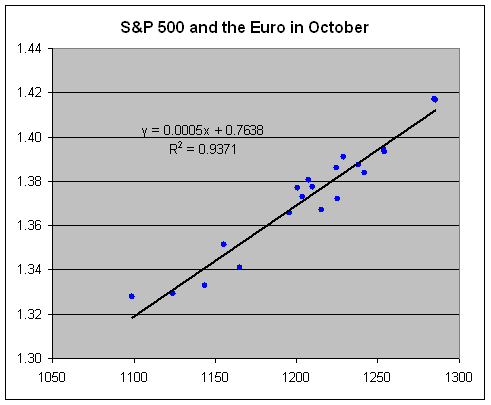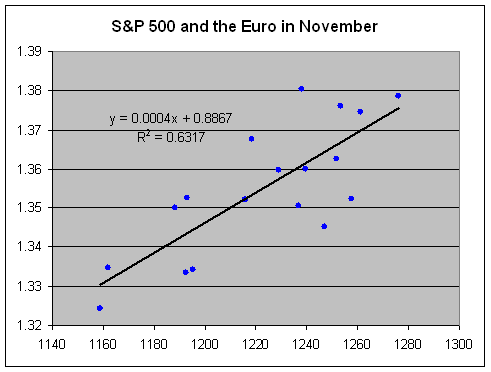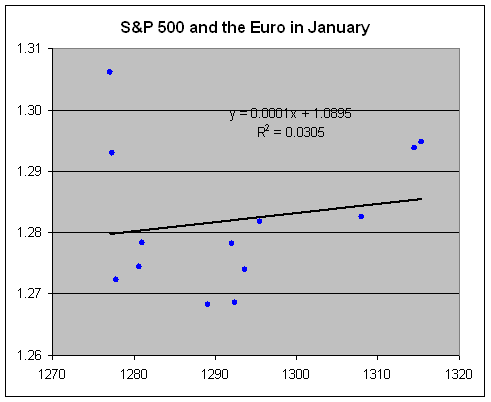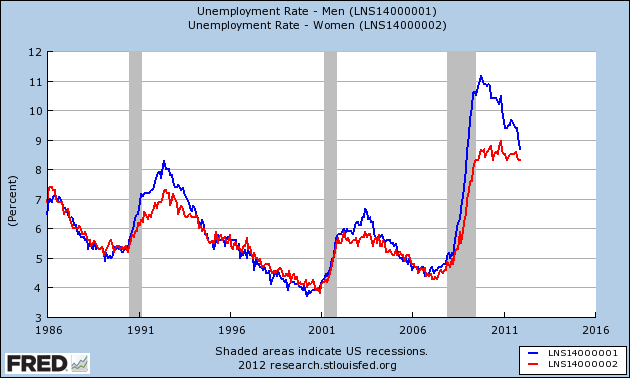-
Morning News: January 25, 2012
Posted by Eddy Elfenbein on January 25th, 2012 at 5:42 amMerkel Masters Markets With Euro Austerity
In Europe, a Conflict Over Bank Capital
German Business Confidence Rose in January
U.K. May Slip Closer to Recession as King Says BOE Can Increase Stimulus
Japan’s First Trade Deficit Since 1980 Raises Debt Doubts
The End of Mutual Funds is Coming
Obama Calls for Higher Taxes on Wealthy
Confidence Falls as CEOs Prepare for More Shocks
Apple’s Profit Doubles on Holiday iPhone 4S Sales
Yahoo’s Revenue Misses Estimates as Advertising Demand Shrinks
Ericsson Profit Plunges as Network Sales Slow
Novartis Cautious on Outlook as Profit Drops 46%
Roche Makes $5.7 Billion Offer for Illumina in Hostile Bid
Cullen Roche: Apple Inc. – Bull Versus Bear
Stone Street: What ZAGG Bulls Are Missing & Why
Be sure to follow me on Twitter.
-
CA Technologies Posts Huge Earnings, Quintuples Dividend
Posted by Eddy Elfenbein on January 24th, 2012 at 6:00 pmWow, CA Technologies ($CA) knocked the cover off the ball. The stock is up 17% in the after-hours market, and that’s on top of rising 1.69% today.
For fiscal Q3, CA earned 65 cents per share, 11 cents more than Wall Street’s estimate. The company is also raising its annual dividend five-fold. Quarterly revenue came in at $1.263 billion compared with Wall Street’s estimate of $1.21 billion.
CA also raised its 2012 EPS guidance. The company now sees 2012 earnings (ending March 31st) ranging between $2.21 and $2.25 per share. The old range was $2.13 to $2.18 per share. Wall Street had been expecting $2.15 per share.
Income from continuing operations rose 34 percent to $263 million, or 54 cents a share, from $196 million, or 38 cents a year earlier, the company, which operates as CA Technologies, said today in a statement. Excluding some items, profit was 65 cents, beating the 54-cent average estimate of analysts surveyed by Bloomberg.
Revenue rose 10 percent to $1.26 billion, exceeding analysts’ $1.21 billion estimate. Chief Executive Officer Bill McCracken has spent about $1.8 billion on acquisitions in recent years as he seeks to lessen the Islandia, New York-based company’s dependence on mainframe products and expand in technology security and management, including cloud software.
For the fiscal year ending March 31, CA said sales will rise 6 percent, the high end of its prior range. The company raised its forecast for adjusted earnings to $2.21 to $2.25 from $2.13 to $2.18.
CA Technologies will return $2.5 billion to shareholders by March 31, 2014, by increasing its annual dividend to $1 from 20 cents, and repurchasing $1.5 billion of stock, including about $230 million remaining under its existing authorization.
CA is hiking its annual dividend from 20 cents per share to $1.00 per share.
-
Apple Is Sitting on Nearly $100 Billion in Cash
Posted by Eddy Elfenbein on January 24th, 2012 at 5:19 pmForget Apple‘s ($AAPL) stunning earnings report; think about all the money that the company is sitting on.
As of December 31st, Apple has $10.31 billion in cash and cash equivalents, plus $19.846 billion in short-term marketable securities and another $67.445 billion in long-term marketable securities.
Add it up, that’s $97.601 billion cash in the bank. Or about $112 per share.
Damn.
-
US Stocks Shake Off Europe
Posted by Eddy Elfenbein on January 24th, 2012 at 12:36 pmI’ve mentioned a few times that the U.S. stock market has finally disentangled itself from Europe. The problem is that it’s hard to show graphically. Here’s my attempt.
The following three charts show the S&P 500 on the horizontal axis and the euro/dollar exchange rate on the vertical axis. This is for the the months of October, November and January.
In October, you can see how high the correlation is (0.9371). In November, the relationship starts to break down. By January, it’s completely gone. This is a major reason why we’ve been rallying.
-
Unemployment: Men Vs. Women
Posted by Eddy Elfenbein on January 24th, 2012 at 12:03 pmI thought this was an arresting chart. It shows the male unemployment rate (in blue) compared with the female unemployment rate (in red). In a recession, the rate for males typically rises higher than the rate for females. Note what happened in the early 1990s.
In this latest recession, often called the “man-cession,” the unemployment rate for men soared much higher than women. I think that’s probably due to the recession hitting sectors like construction and homebuilders extra hard.
Only now is the jobless rate for males coming back to parity to the rate for women.
-
Johnson & Johnson Earns $1.13 Per Share
Posted by Eddy Elfenbein on January 24th, 2012 at 8:50 amJohnson & Johnson ($JNJ) reported Q4 earnings of $1.13 per share which was four cents per share more than estimates. For the year, JNJ earned exactly $5 per share. The company said that for 2012 they see earnings of $5.05 to $5.15 per share which is below Wall Street’s estimate of $5.21 per share.
Johnson & Johnson today announced sales of $16.3 billion for the fourth quarter of 2011, an increase of 3.9% as compared to the fourth quarter of 2010. Operational sales increased 4.0% and the negative impact of currency was 0.1%. Domestic sales declined 3.4%, while international sales increased 10.2%, reflecting an operational increase of 10.4% and a negative currency impact of 0.2%. Worldwide sales for the full-year 2011 were $65.0 billion, an increase of 5.6% versus 2010. Operational sales increased 2.8% and the positive impact of currency was 2.8%. Domestic sales declined 1.8%, while international sales increased 12.4%, reflecting operational growth of 7.0% and a positive currency impact of 5.4%.
Net earnings and diluted earnings per share for the fourth quarter of 2011 were $0.2 billion and $0.08, respectively. Fourth-quarter 2011 net earnings reflect after-tax charges of $2.9 billion, which include product liability expenses, the net impact of litigation settlements, costs associated with the DePuy ASR™ Hip recall program, and an adjustment to the value of a currency option and costs related to the planned acquisition of Synthes, Inc. Fourth-quarter 2010 net earnings included after-tax charges of $922 million representing product liability expenses, the net impact of litigation settlements, and costs associated with the DePuy ASR™ Hip recall program. Excluding these special items for both periods, net earnings for the current quarter were $3.1 billion and diluted earnings per share were $1.13, representing increases of 9.3% and 9.7%, respectively, as compared to the same period in 2010.*
Net earnings and diluted earnings per share for the full-year 2011 were $9.7 billion and $3.49, respectively. Full-year 2011 net earnings reflect after-tax charges of $4.2 billion, which include product liability expenses, the net impact of litigation settlements, a previously announced restructuring charge by Cordis Corporation, costs associated with the DePuy ASR™ Hip recall program, and an adjustment to the value of a currency option and costs related to the planned acquisition of Synthes, Inc. Full-year 2010 net earnings included a net after-tax gain of $55 million representing product liability expenses, the net impact of litigation settlements, and costs associated with the DePuy ASR™ Hip recall program. Excluding these special items in both periods, net earnings for the full-year 2011 were $13.9 billion and diluted earnings per share were $5.00, representing increases of 4.4% and 5.0%, respectively, as compared with the full year of 2010.*
The Company announced earnings guidance for full-year 2012 of $5.05 to $5.15 per share, which excludes the impact of special items. This guidance reflects operational growth of approximately 3.5% to 5.5% partially offset by an estimated negative impact of currency of approximately 2.5%.
“We delivered solid results for 2011, built on the strong growth of our recently launched pharmaceutical products, and continued the steady momentum of new product approvals across all our businesses,” said William C. Weldon, Chairman and Chief Executive Officer. “Our talented people are focused on bringing meaningful innovations to patients and customers to address significant unmet needs, positioning us well to deliver sustainable leadership and profitable growth in health care.”
-
Morning News: January 24, 2012
Posted by Eddy Elfenbein on January 24th, 2012 at 5:34 amEU Seeks Bondholder Concessions on Greece
Permanent Rescue Fund Seems Nearer in Europe
In Europe, Arguing to Apply Some Stimulus Along With the Austerity
Euro-Area Manufacturing Unexpectedly Expands
Europe Weighs Tough Law on Online Privacy
BOJ Sees Recovery Delayed as Europe Bites But Skips Easing
A Loophole Poses Risks to Investors in Chinese Companies
India Unexpectedly Cuts Reserve Ratio as BRIC Nations Act to Shield Growth
Crude Oil Trades Near $100 on Concern Iran May Respond to European Embargo
U.S. CO2 Emissions to Stay Below 2005 Levels as Coal Use Shrinks
Meet the New Federal Reserve Members
Political Push Moves a Deal on Mortgages Inches Closer
Texas Instruments Beats Estimates in Sign Components Market Bottoming Out
European Semiconductor Giant STMicroelectronics Predicts Sales Decline
Chesapeake Stalls Slide in Gas Prices With Cutbacks in Drilling
Global Macro Monitor: On the Collapse of the Shanghai Composite
Phil Pearlman: It’s Not How Apple Reports Tonight, It’s Do You Have A Plan?
Be sure to follow me on Twitter.
-
Goldman Says to Short the 10-year Treasury
Posted by Eddy Elfenbein on January 23rd, 2012 at 12:16 pmAt Business Insider, Joe Weisenthal points us toward this note from Goldman Sachs, which supports our thesis of higher long-term yields. Goldman is now urging clients to short the 10-year U.S. Treasury.
Go Short 10-yr US Treasuries
Since the end of last August, we have argued that 10-yr US Treasury yields would not be able to sustain levels much below 2% in this cycle. Yields have traded in a tight range around an average 2% since September, including so far into 2012. We are now of the view that a break to the upside, to 2.25-2.50%, is likely and recommend going tactically short. Using Mar-12 futures contracts, which closed on Friday at 130-08, we would aim for a target of 126-00 and stops on a close above 132-00. Our rationale is as follows.
At this stage of the cycle, growth expectations are in the driver’s seat: The value of intermediate maturity government bonds can be related to expectations of future policy rates, activity growth and inflation, and a ‘risk factor’ highly correlated across the main countries. These simple relationships are captured by our Sudoku econometric framework for 10-yr maturity yields. In coming months, we expect effective overnight rates to remain close to zero in the main currency blocs (US, Japan, Euroland, and UK) and retail price inflation to hover around 1.5-2.0% – consistent with the forwards and central banks’ objectives. With policy rates and inflation ‘dormant’ at this stage of the business cycle, bond yields (and the 2-10-yr slope of the yield curve) will likely react mostly to shifts in growth expectations.
Bond valuations are already stretched relative to consensus growth expectations: Around the turn of the year, the outlook on economic activity was buffeted by cross-currents reflecting the adverse credit conditions in the Euro area on the one hand, and the upward revisions to US GDP growth on the other. Our Sudoku model, which helps us trade-off these shifts, indicates that 10-yr government bond yields are currently trading too low (to the tune of 50-75bp) when mapped against prevailing macro expectations. Taking into account the cumulative impact of the Fed’s security purchases, the degree of mis-valuation of 10-yr bonds is roughly the same across the main regions.
I think this is right. What I find unusual is that it hasn’t already happened especially considering the continued rise in cyclical stocks versus the broader market. The Morgan Stanley Cyclical Index ($CYC) got as high as 982 today which is a 33% run from October 3rd.
-
Stock Trading Is Lowest in U.S. Since 2008
Posted by Eddy Elfenbein on January 23rd, 2012 at 10:03 amTrading in U.S. stocks fell to the lowest level since at least 2008 amid mutual fund withdrawals and Wall Street job cuts.
An average of 6.69 billion shares changed hands on U.S. exchanges in the 50 days ended Jan. 18, the fewest on record in Bloomberg data starting three years ago that excludes over-the- counter venues. On the New York Stock Exchange, volume has tumbled to the lowest level since 1999, the data show.
The slowdown in trading shows that investors remain skittish after five years of withdrawals from mutual funds that buy U.S. equities and one of the most volatile years on record for the Standard & Poor’s 500 Index. While the benchmark index is having its best January rally since 1997, securities firms around the world cut more than 200,000 jobs last year.
“Investor confidence is shaky at the very least,” Mark Turner, head of U.S. sales trading at Instinet Inc. in New York, said in a telephone interview on Jan. 20. His firm handles about 4 percent of the total daily U.S. equity volume. “We need to see the U.S. economy improve. We need to see some sort of a plan in place to deal with Europe’s debt crisis before the market gains some confidence. At that point, we’ll start to see an increase in volume.”
Daily equity trading approached 12 billion shares in May 2009, near the start of a three-year bull market in which the S&P 500 has almost doubled. The total is based on the 50-day average volume on venues including those run by NYSE Euronext, Nasdaq OMX Group Inc., Bats Global Markets Inc. and Direct Edge Holdings LLC.
-
Greece to Be Saved…Again
Posted by Eddy Elfenbein on January 23rd, 2012 at 9:45 amToday is the day that finance ministers in the euro zone are going to decide exactly what to do with Greece. If you’re keeping score, this is the second time they’re trying to settle this question once-and-for-all. The hard part is to get the people Greece owes to accept the idea that they’re not getting all of their money back. Rough, I know. The early indications are that the bondholders are going to get about one-third back. I’m actually surprised it’s that high.
The market is basically unchanged so far this morning. I see that Ford ($F) seems to be extending its gains from last week. It’s good to see that investors are ready to dump all the profits they made recently. Tomorrow is going to be a very big earnings day for us.
There’s also talk of when the Fed will embark on its third round of quantitative easing. Frankly, I’m a doubter. Not only is it politically unpopular, but also it may not be needed.
-
-
Archives
- May 2025
- April 2025
- March 2025
- February 2025
- January 2025
- December 2024
- November 2024
- October 2024
- September 2024
- August 2024
- July 2024
- June 2024
- May 2024
- April 2024
- March 2024
- February 2024
- January 2024
- December 2023
- November 2023
- October 2023
- September 2023
- August 2023
- July 2023
- June 2023
- May 2023
- April 2023
- March 2023
- February 2023
- January 2023
- December 2022
- November 2022
- October 2022
- September 2022
- August 2022
- July 2022
- June 2022
- May 2022
- April 2022
- March 2022
- February 2022
- January 2022
- December 2021
- November 2021
- October 2021
- September 2021
- August 2021
- July 2021
- June 2021
- May 2021
- April 2021
- March 2021
- February 2021
- January 2021
- December 2020
- November 2020
- October 2020
- September 2020
- August 2020
- July 2020
- June 2020
- May 2020
- April 2020
- March 2020
- February 2020
- January 2020
- December 2019
- November 2019
- October 2019
- September 2019
- August 2019
- July 2019
- June 2019
- May 2019
- April 2019
- March 2019
- February 2019
- January 2019
- December 2018
- November 2018
- October 2018
- September 2018
- August 2018
- July 2018
- June 2018
- May 2018
- April 2018
- March 2018
- February 2018
- January 2018
- December 2017
- November 2017
- October 2017
- September 2017
- August 2017
- July 2017
- June 2017
- May 2017
- April 2017
- March 2017
- February 2017
- January 2017
- December 2016
- November 2016
- October 2016
- September 2016
- August 2016
- July 2016
- June 2016
- May 2016
- April 2016
- March 2016
- February 2016
- January 2016
- December 2015
- November 2015
- October 2015
- September 2015
- August 2015
- July 2015
- June 2015
- May 2015
- April 2015
- March 2015
- February 2015
- January 2015
- December 2014
- November 2014
- October 2014
- September 2014
- August 2014
- July 2014
- June 2014
- May 2014
- April 2014
- March 2014
- February 2014
- January 2014
- December 2013
- November 2013
- October 2013
- September 2013
- August 2013
- July 2013
- June 2013
- May 2013
- April 2013
- March 2013
- February 2013
- January 2013
- December 2012
- November 2012
- October 2012
- September 2012
- August 2012
- July 2012
- June 2012
- May 2012
- April 2012
- March 2012
- February 2012
- January 2012
- December 2011
- November 2011
- October 2011
- September 2011
- August 2011
- July 2011
- June 2011
- May 2011
- April 2011
- March 2011
- February 2011
- January 2011
- December 2010
- November 2010
- October 2010
- September 2010
- August 2010
- July 2010
- June 2010
- May 2010
- April 2010
- March 2010
- February 2010
- January 2010
- December 2009
- November 2009
- October 2009
- September 2009
- August 2009
- July 2009
- June 2009
- May 2009
- April 2009
- March 2009
- February 2009
- January 2009
- December 2008
- November 2008
- October 2008
- September 2008
- August 2008
- July 2008
- June 2008
- May 2008
- April 2008
- March 2008
- February 2008
- January 2008
- December 2007
- November 2007
- October 2007
- September 2007
- August 2007
- July 2007
- June 2007
- May 2007
- April 2007
- March 2007
- February 2007
- January 2007
- December 2006
- November 2006
- October 2006
- September 2006
- August 2006
- July 2006
- June 2006
- May 2006
- April 2006
- March 2006
- February 2006
- January 2006
- December 2005
- November 2005
- October 2005
- September 2005
- August 2005
- July 2005




 Eddy Elfenbein is a Washington, DC-based speaker, portfolio manager and editor of the blog Crossing Wall Street. His
Eddy Elfenbein is a Washington, DC-based speaker, portfolio manager and editor of the blog Crossing Wall Street. His